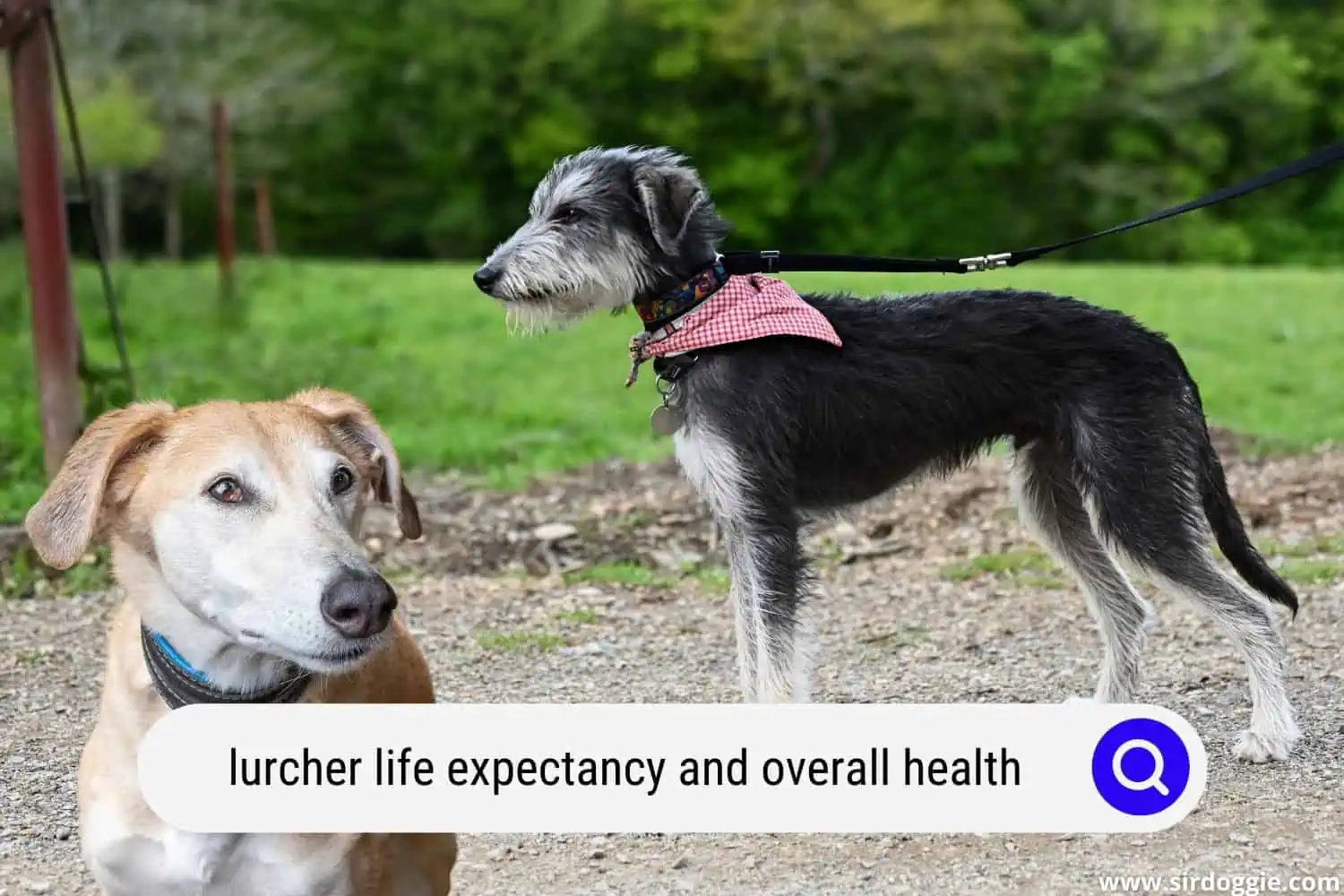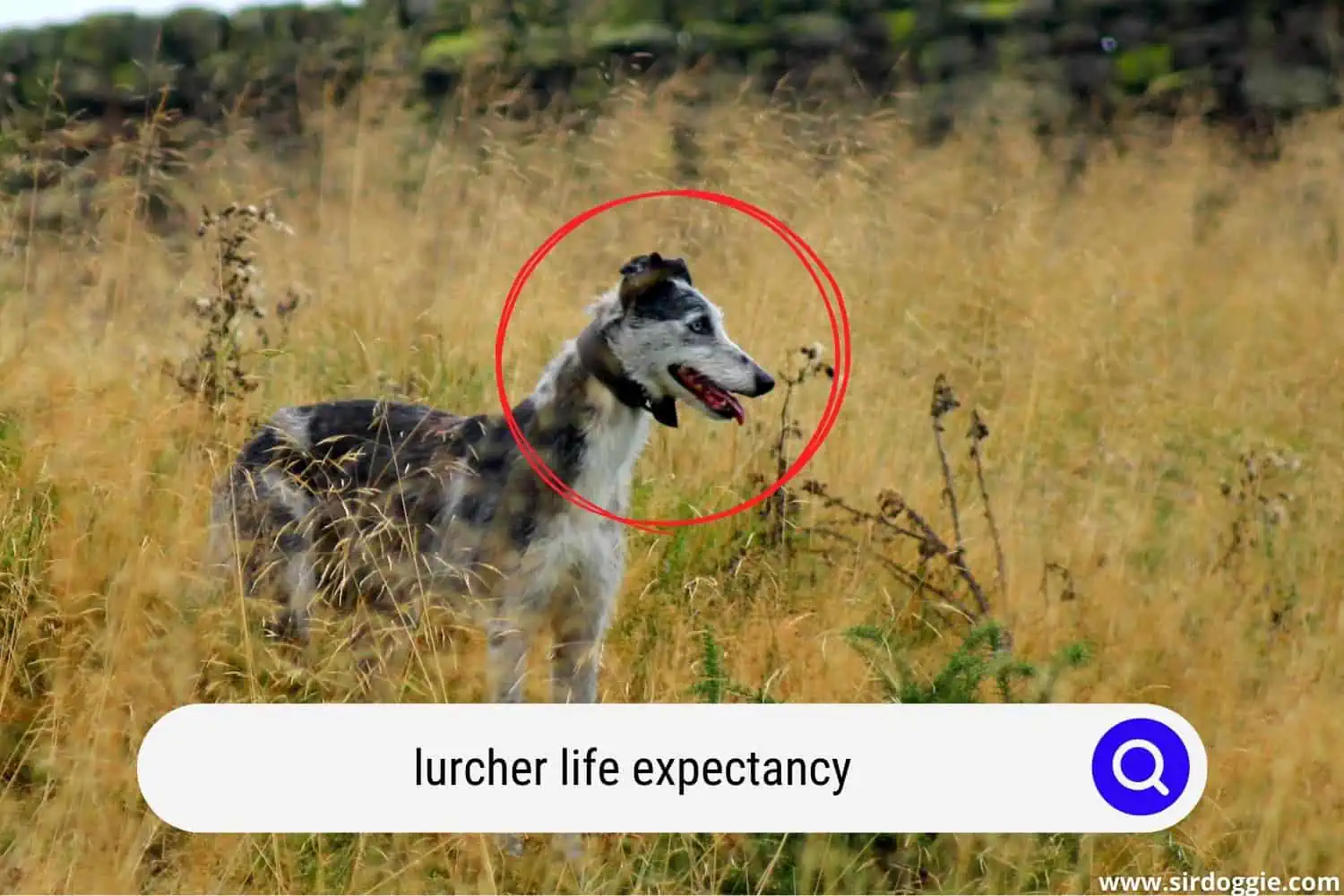Lurcher Life Expectancy and Overall Health
Lurchers have a life expectancy of 12 to 15 years. This can only be so if proper care and nutrition are given to them. Regular vet checkups are also important to help them hit their life expectancy.

Lurchers possess several characteristics that make them ideal dogs to raise. One of the advantages of owning a Lurcher is that they have a longer life expectancy than many other breeds.
However, their lifespan is influenced by the diet and care they receive.
Related Reading: Lurchers, An Overview Of This Amazing Dog!
Do Lurchers have health problems?
The Lurcher dog breed is considered a pretty healthy cross-breed. However, they are prone to several health issues that you need to be aware of. Some of these health problems are:
Anesthesia Sensitivity
Lurchers are sensitive to anesthesia and some other drugs. A normal dose for any other dog of its size can kill a Lurcher. This is perhaps due to the dog’s low percentage of body fat.
Choose a vet who’s aware of sighthounds and this sensitivity. A competent vet knows how to dose your Lurcher.
Hypothyroidism
Hypothyroidism is one of the most common hormone imbalances in Lurchers. It is usually caused by a disorder of the thyroid gland. The most common signs of low thyroid problems in Lurchers include lethargy, mental dullness or depression, weight gain, dull or dry coat, excessive shedding, or hyperpigmented skin.
This disease can be treated with daily thyroid medication and diet. A dog that’s getting daily thyroid treatment can live a full and happy life.
Osteosarcoma
This health problem is aggressive bone cancer. The first sign of osteosarcoma in Lurchers is lameness. Osteosarcoma is determined by x-ray scans.
Lurchers with this disease are treated with the amputation of the limb and chemotherapy. Lurchers, receiving treatment, can live nine months to two years or more.
Torn Toenails
If you find that your Lurcher’s torn toenails, there is a reason for concern, but not alarm. If the toenail bed becomes inflamed, the situation will worsen.
The bleeding that accompanies a torn nail further complicates the matter. Your vet will give antibiotics to prevent and cure the infection.
Gastric Torsion (Bloat)
Bloat is caused by the sudden influx of gas and air in Lurcher’s stomach. This causes the stomach to distend and twist. It can even cause death in a Lurcher if it is not treated promptly.
Some of the links in this post are affiliate, and we may earn a commission.

Is There a Difference Between Male and Female Lurcher Lifespan?
Male Lurchers are slightly bigger than female Lurchers. But this doesn’t have any impact on their lifespan.
Lurcher sex doesn’t affect their life expectancy.
How Should You Take Care of Your Lurchers
You can help your Lurcher live his best life. Lurcher care is beyond a few rounds of shots. It involves a lot of things including feeding, training, exercises, grooming, taking them for check-ups to a vet, and much more.
As a responsible Lurcher parent, it is your duty to make sure that your dog enjoys better and longer years. While it may feel like a challenge it’s possible!
Consider the following tips that you can take to keep your Lurcher healthy and happy.
Provide a healthy diet
If you want your Lurchers to be healthy and full of energy, it is essential to feed them properly.
Look for an ideal balance of vitamins, minerals, proteins, fats, and carbs. The diet should be based on your Lurcher’s age, gender, and activity level.
Regular exercise
Lurchers should be given a regular exercise to avoid health problems. Regular physical activities will make them more capable of participating in the activities that your Lurcher enjoys.

Maintain a healthy weight
Keeping your dog at an appropriate weight range is one of the easiest ways to extend its life.
Vaccination and vet visits
Regular vet visits are essential for your Lurchers. Keep up with your Lurcher’s vaccines to protect them from diseases.
Regular grooming
Regular grooming and careful weekly examinations are essential. Always keep an eye out for early signs to spot potential problems early.
Trim their nails regularly as overgrown nails in Lurchers can lead to torn toenail problems.
Make grooming and examination a positive experience for your Lurcher, filled with praise and rewards.
Safe playtime with Lurchers
Lurchers love to play and thrive on human companionship. This is an effective way to develop a strong bond with them.
Give them mental stimulation
A bored dog is a destructive dog and may harm itself. Try to provide ample opportunities for mental challenges for your lurcher and try not to leave your lurcher alone for too long.
This will keep your Lurcher young at heart, and smart, and prevent boredom.
Always ensure a protected and clean living environment for your Lurcher. Maintain good hygiene and protect them from environmental hazards.
Training and socialization
Training and socialization are essential for the well-being of your Lurcher. A well-trained and socialized Lurcher does not get bored and remains stress-free.
Give plenty of love
One of the most important things you can give your Lurcher is love and affection. Give them attention and let them know how much you love them. This will help keep your dog by your side for the longest possible time.

Final Thoughts
We all want our Lurchers to live a long and healthy life. Your Lurcher can live for many years if it does not have serious health problems.
Try to learn as much as possible about Lurchers specifically about raising, exercise, training, and health concerns.

Family Dog Expert Author
Hi there! I’m Stuart, a devoted dog lover and family dog expert with over a decade of experience working with our furry companions. My passion for dogs drives me to share my knowledge and expertise, helping families build strong, loving bonds with their four-legged friends. When I’m not writing for SirDoggie, you’ll find me hiking, playing with my beautiful dog, or studying music.
